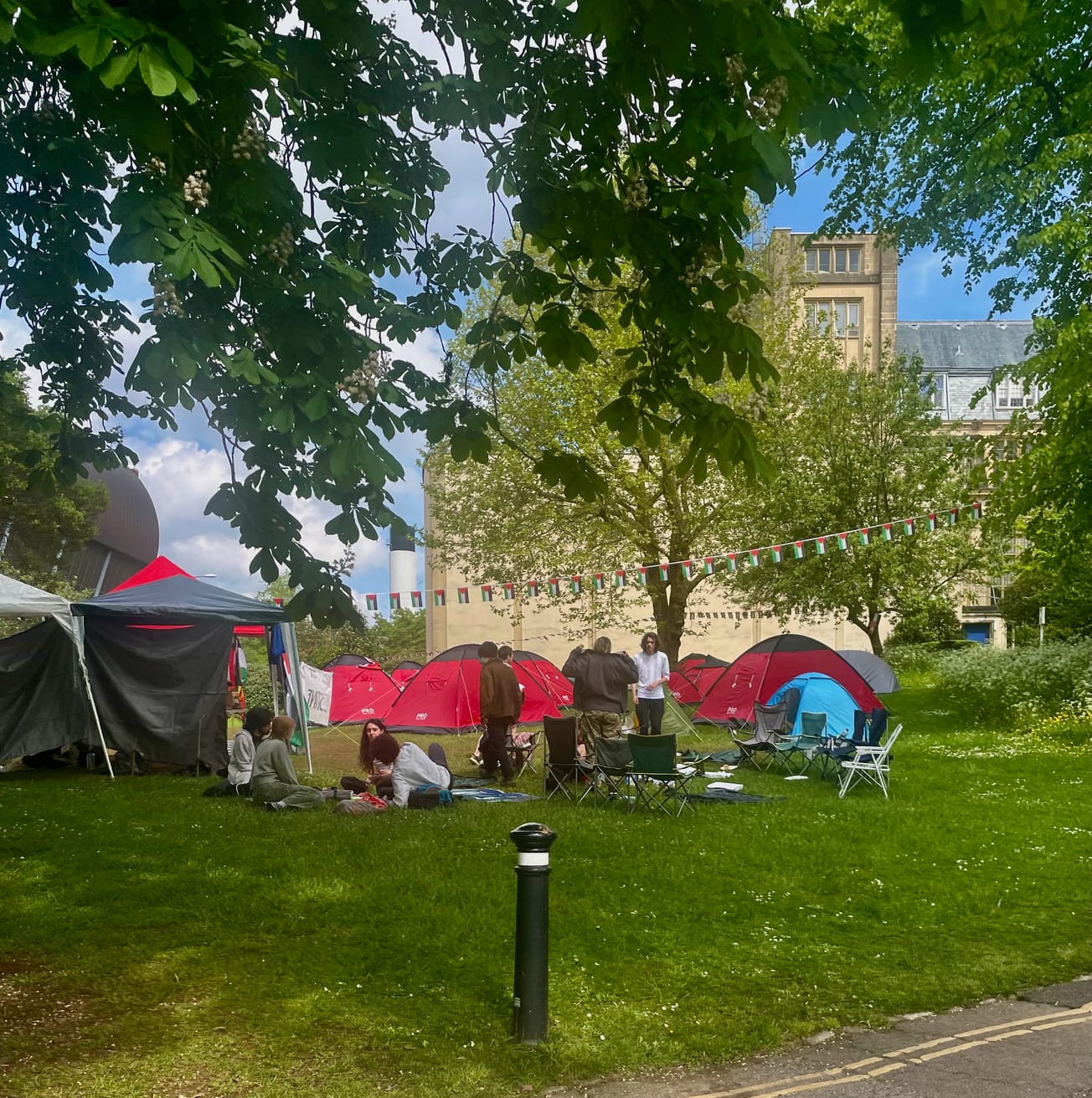By Charlotte Harrison, Liberal Arts, Third Year
The attraction of a space that challenges hetero-normative cultural codes is of course compelling and exciting. Queer spaces are few and far between, but a night out at a gay club is now embedded within the social norms of UK night culture.
Most people who like to club will have been to one. OMG in Bristol is no exception. The student nights on Wednesdays have become a standard practice among people of all sexual identities; the chance to watch your friends strip for a microwave or kettle seems to hold its appeal.
Last month, Daniel Craig said in an interview that he has been going to gay bars for as long as he can remember in order to escape the ‘The aggressive d--- swinging in hetero bars’. In gay bars, ‘Everybody was chill… You didn't really have to sort of state your sexuality. It was okay and it was a very safe place to be.’
Craig, as his character in James Bond, has become synonymous with an increasingly antiquated notion of man, and indeed, sexuality. For nearly two decades he has played: white, straight, rich, powerful, cis-gendered and heteronormative. His words were refreshing to some, and annoying to others.
Indeed, as the next generation grows into a more inclusive society, the question of who should be allowed to enter queer spaces is increasingly divisive.
It is undeniably a complex issue, involving an array of different people for which I don’t think one individual can speak on behalf of. However, there are significant theoretical and practical issues with wishing to discourage non-LGBTQ+ students from entering gay bars, rendering it a misguided response to an emotive situation.
Discouraging non-LGBTQ+ people from attending OMG would not necessarily create a utopic sanctuary for all things camp and queer.
Gay bars are egalitarian spaces. They are supposed to cultivate an accepting atmosphere, where one can diverge from cultural and social norms and celebrate individuality.
Segregationist and exclusionary practices place increased significance on the performance of gender and sexuality than on the more personal individual ‘identity’.
LGBTQ+ does not refer to a singular identity and as such the motivations of members of the community are not analogous, which has notoriously led to internal conflict. Anti-cis-hetero does not necessarily render the space as ‘safe’.
In an attempt to build and preserve the collective identity of being LGBTQ+, OMG would have to answer questions of who is queer enough to belong and to what extent, creating divisions inside and outside of the community.
Discouraging non-LGBTQ+ people from attending OMG would not necessarily create a utopic sanctuary for all things camp and queer. Instead, it would create a physical manifestation of division and differentiation against so-called social mores.
The result of this would be further ‘othering’ for the LGBTQ+ society and could additionally serve to pressure people to ‘come-out’ or deprive people who wish to explore their gender or sexual identity of a place to do so.
Who defines who is LGBTQ+ enough to belong in these spaces?
The physical hard border between heterosexual culture and everything else would ostracise much of the community it is wishing to protect. Consequently, attempts to make it a ‘safe-if-you’re-out space’ would be counterintuitive.
The desire to keep OMG free of ‘straight girls’ and in turn ‘straight boys’ is a highly loaded and disparaging stance, which was surprisingly popular (based on a metric of likes).
The intention may well have been to create a space where romantic advances would be less likely to be rejected based upon gender preference. In practice, the argument only serves to create a divide within the LGBTQ+ community and overlook the co-existence of many straight-trans or non-binary people.
The agenda, or at best the phrasing, then appears to be trans-exclusionary. Although the discourse is more targeted at discouraging anyone not homosexual, this is an apt example of the problems that could arise when trying to legislate for a community which represents such an array of people.
It thus becomes increasingly challenging to police who should be allowed into OMG when there is such variation in identity and desire within the same community.
To attempt to solve a multi-faceted issue with a reductive black and white, in or out approach would create far greater problems than it would resolve. Who defines who is LGBTQ+ enough to belong in these spaces?
Discouraging non-LGBTQ+ people from attending OMG would not necessarily create a utopic sanctuary for all things camp and queer
If, for example, a bisexual person in a heterosexual relationship wishes to go out with their partner should they too be discouraged due to the heterosexual nature of their relationship despite being a part of the LGBTQ+ community?
Discouraging is, of course, different from banning non-LGBTQ+ students. But social pressure to not attend gay bars may not be enough.
Instead, more impetus should be placed on an increased number of clubs and venues being LGBTQ+ welcoming so members of this community do not have to feel confined to a singular club in order to feel safe in their self-expression and identity.
Featured image: Unsplash | Jason Leung
Let us know what you think about LGBTQ+ spaces in Bristol using the twitter handle @EpigramOpinion, or follow us on Facebook at Epigram.









